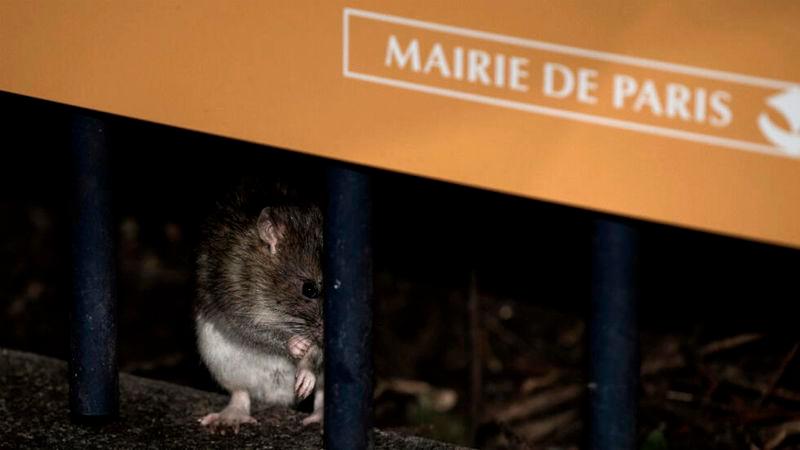WHILE the Paris Olympics is set to be a festival of socialising and intermingling, city authorities are keen for visitors not to encounter any of the capital’s notorious furry inhabitants.
Humourously portrayed in the hit animated film “Ratatouille”, the French capital’s abundant rat population is no joke for the city’s residents -- and could be an embarrassment as the Olympics spotlight falls on Paris.
“All of the Olympic sites and celebration areas were analysed (for rats) before the Games,“ deputy mayor Anne-Claire Boux, who has responsibility for public health, told AFP in an interview.
As well as ordering a deep clean to remove any food residues that might tempt the scurriers from their underground lairs, the mayor’s rodent specialists also worked to close up exit points from the sewers around the sites.
“Where there were areas with lots of rats we put traps in place ahead of the Games,“ Boux continued, adding that both mechanical rat-traps and chemical solutions were used to reduce troublesome populations.
The park behind the Eiffel Tower, where the beach volleyball is set to take place, and the Louvre gardens, where the Olympic cauldron is set to burn, are popular picnic spots -- and previously rat infested.
“Ultimately, no-one should aim to exterminate Paris’s rats, and they’re useful in maintaining the sewers,“ she added. “The point is that they should stay in the sewers.”
Spruced up
Paris vermin, a feature in French literature from “Les Miserables” to “the Phantom of the Opera”, are frequently drawn into a contemporary debate about cleanliness in the French capital.
Current mayor Anne Hidalgo, a Socialist who relies on support from the Greens, is regularly accused by her conservative critics of failing to keep the capital free from the scourges of rubbish, rodents and dog excrement.
A viral social media campaign in 2021 called #SaccageParis (#TrashedParis) led to residents posting pictures of overflowing bins, badly maintained street furniture or overgrown green spaces that hurt the city’s cultivated reputation for elegance.
The city unveiled a “manifesto for beauty” afterwards in response to the criticism.
Ahead of the Olympics, its boulevards and squares have been thoroughly spruced up, with many historic buildings given a makeover.
Boux stressed that rat problems were first and foremost caused by food being left out on the ground, or from overflowing waste bins, many of which are being changed around Paris to new rat-proof versions.
“The most important thing is that the bins are sealed and closed,“ she said.
Caricature?
The city’s rodent exterminators -- known as the “Smash” team -- have also had an advisory role to the Paris organising committee, suggesting ways to design their sites to keep them clean and orderly.
Responsibility for waste removal and street-cleaning will fall to the city’s 7,500-strong cleaning and collection teams, whose three-week strike last year led to an estimated 10,000 tonnes of garbage pile up in the streets.
They are set to earn bonuses of up to 1,900 euros for working through the Olympic period, while private contractors are also set to reinforce efforts to keep the city clean.
“I’m not at all worried (about rats),“ deputy mayor in charge of waste, Antoine Guillou, told AFP. “On the contrary, the Games will help us show definitively that this idea that you run into lots of rats in Paris is false.
“There are some, we deal with them, but they’re not an issue specific to Paris nor on the scale that is sometimes suggested in a caricatural way,“ he said.









